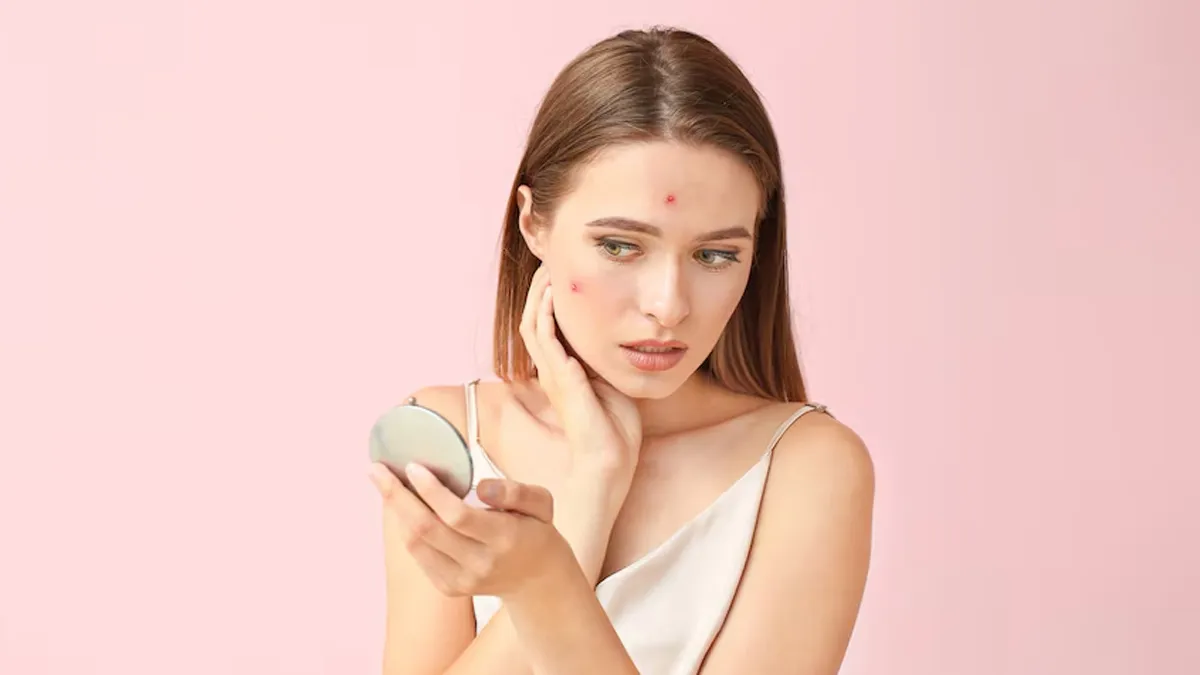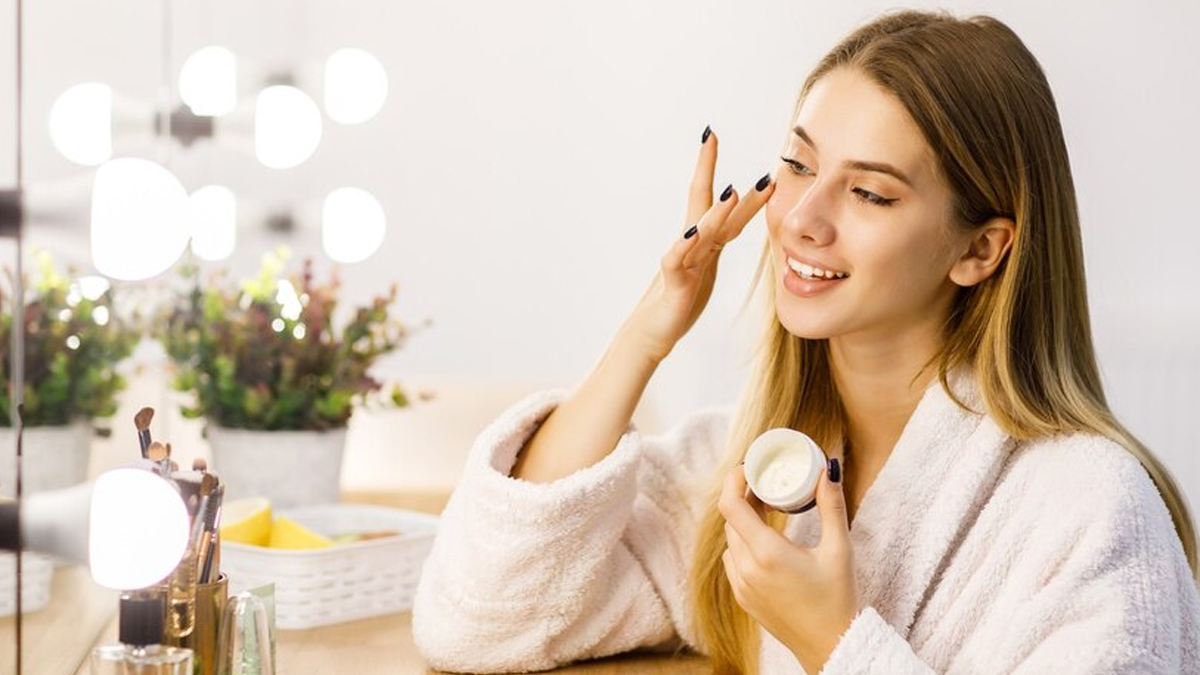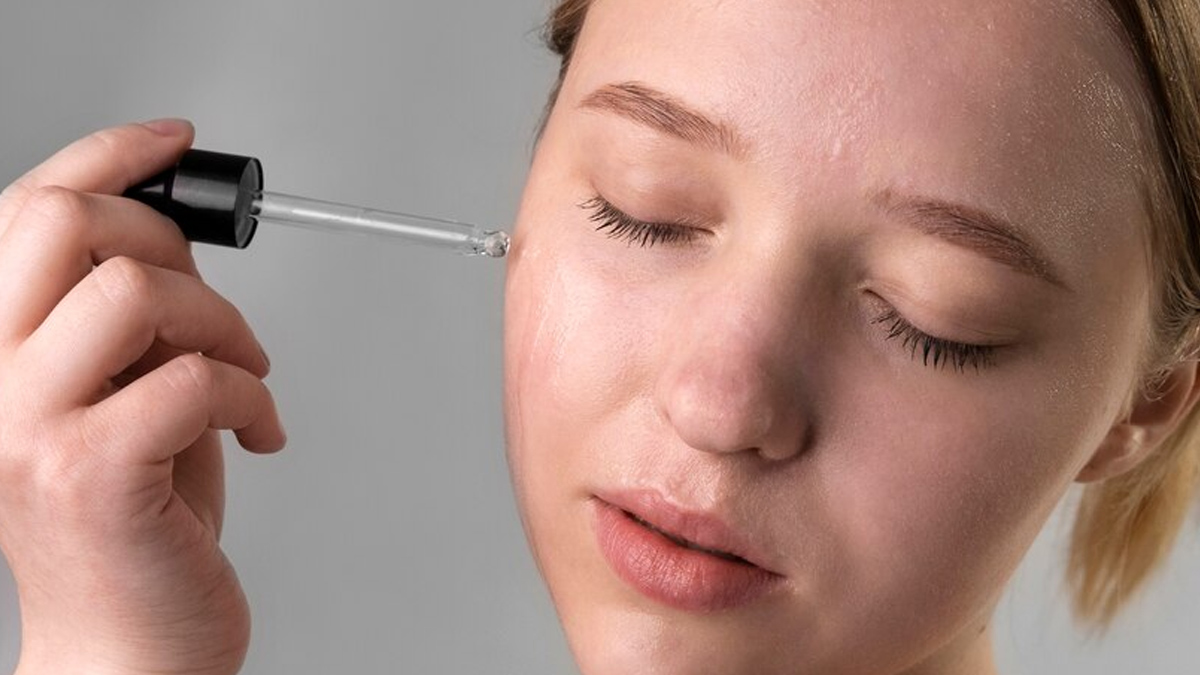
Winter is a season of cosy sweaters, hot chocolate, and festive joy, but it can also bring unexpected skincare troubles, including stubborn acne. Just when you think the cooler weather will give your skin a break from summer breakouts, winter’s dry air, harsh winds, and lifestyle changes can trigger a fresh wave of pimples. The combination of dehydrated skin, increased oil production, and heavier skincare products creates the perfect storm for winter acne.
Table of Content:-
Causes of Winter Acne

One of the primary reasons for acne during winter is dry skin. Cold air and low humidity levels strip the skin of its natural moisture, leading to dryness and irritation. In response, the skin may overproduce sebum, clogging pores and causing acne.
To understand more about winter acne, its causes, prevention and treatment, OnlyMyHealth team interacted with Dr Monica Kapoor, Celebrity Cosmetologist and Director, Flawless Cosmetic Clinic & ILACAD Institute. She explains, “Winter air is harsh on the skin. The lack of moisture causes excessive dryness, triggering the sebaceous glands to produce more oil, leading to clogged pores and breakouts."
Additionally, heavy, rich skincare products often used to combat dryness can backfire on acne-prone skin. Thick creams and oils may block pores, increasing the risk of breakouts.
According to Dr Kapoor, “Another culprit is winter accessories like scarves, hats, and face masks. These items trap sweat, oil, and bacteria against the skin, leading to irritation and acne, particularly around the chin, cheeks, and jawline. If not cleaned regularly, they become breeding grounds for bacteria.”
Dietary changes also play a role in winter acne. Comfort foods high in sugar and dairy, commonly consumed during colder months, can lead to hormonal imbalances and inflammation, making acne worse. Moreover, Dr Kapoor said that even reduced sunlight exposure weakens the skin’s natural antibacterial defences and lowers vitamin D levels, both of which contribute to breakouts.
Also read: Are Your Hair Products to Blame for Breakouts? 7 Telltale Signs to Watch For
Prevention Strategies

Preventing winter acne starts with a well-structured skincare routine. Hydration is key, but it is essential to use a lightweight, non-comedogenic moisturiser to keep the skin hydrated without clogging pores.
"Opt for hydrating yet non-greasy skincare products. Avoid alcohol-based toners, as they can further dry out the skin and trigger breakouts," says Dr Kapoor.
A gentle, hydrating cleanser should be used instead of harsh, foaming cleansers that strip the skin of its natural oils. Additionally, washing scarves, hats, and pillowcases frequently can minimise bacterial buildup and reduce skin irritation.
While hot showers feel comforting in winter, they can deplete the skin’s natural oils, making acne worse. Dr Kapoor recommended, “Instead, opt for lukewarm showers and pat the skin dry rather than rubbing it with a towel.”
Diet plays a crucial role in acne prevention. “Including omega-3 fatty acids, zinc, and antioxidants in your diet supports skin health, while cutting down on refined sugars and processed foods helps reduce inflammation,” Dr Kapoor advised. Hydration is equally important, drinking enough water prevents dryness and promotes a healthy skin barrier.
Despite the cold weather, Dr Kapoor emphasised that sunscreen remains essential. The sun’s UV rays can still damage the skin in winter. Applying a broad-spectrum sunscreen (SPF 30 or higher) daily helps protect the skin’s barrier.
Also read: Say Goodbye To Acne: 7 Everyday Habits That Might Be Causing Your Breakouts
Treatment Options

If acne does occur, effective treatment strategies can help manage it. Over-the-counter products containing salicylic acid or benzoyl peroxide are excellent for targeting breakouts and reducing inflammation.
"Salicylic acid unclogs pores, while benzoyl peroxide fights bacteria. Retinoids are also highly effective in preventing acne and improving overall skin texture," advises Dr Kapoor.
For hydration without aggravating acne, soothing masks containing ingredients like aloe vera or honey can help calm irritated skin. Spot treatments with sulphur or tea tree oil are also effective for reducing redness and swelling.
When over-the-counter remedies are not enough, professional treatments such as chemical peels, light therapy, or prescription medications may be necessary. A consultation with a dermatologist can help determine the most suitable treatment based on individual skin concerns.
Embracing Clear Skin This Winter
Winter acne can be frustrating, but with the right approach, it is manageable. Hydration, a balanced diet, good hygiene, and consistent skincare are essential for maintaining clear skin throughout the season. "Your skin’s needs change with the weather, so adjusting your skincare routine accordingly can help keep it healthy and glowing, even in winter," concludes Dr Kapoor.
Also watch this video
Read Next
Kojic Acid Or Vitamin C? Expert Shares Which Is More Effective For Pigmentation and Dark Spots
How we keep this article up to date:
We work with experts and keep a close eye on the latest in health and wellness. Whenever there is a new research or helpful information, we update our articles with accurate and useful advice.
Current Version